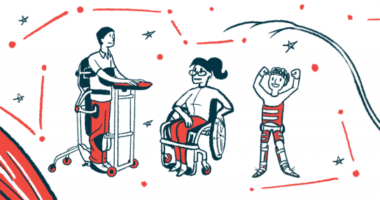Vacationing caregiver leads to respite care for SMA patient
Pros and cons to deciding between respite care or a temporary caregiver

When a person lives in a home where they need help with everyday activities, they usually have an in-home caregiver or live in an assisted community. It is preferable that they are able to live in their home with help, as it increases comfort and a sense of independence, although it comes with challenges. One such challenge is that their at-home caregiver will at some point want to take a vacation and the patient will likely be unable to join.
During this occurrence, there are few options for the person with limitations. If able, they may hire someone to replace the caregiver and help the person with their limitations. This is a difficult role to fill secondary to the specific needs and routine of the person.
Depending on the level of independence the patient has, they may need someone to always stay with them or they may be able to have someone come for a few hours at the beginning and end of the day. If this is the case, it is important that the patient has a way to contact emergency departments in case of an emergency since they’ll be alone. Usually, a local fire department is willing to assist in transfers or other things that need assistance but aren’t necessarily an emergency.
In the case of Michael, my patient with spinal muscular atrophy, his caregiver will be leaving for two weeks of vacation. Usually in this situation, Michael would have a caregiver in the mornings and evenings to help transfer, eat, and toilet. Although this isn’t an ideal situation secondary to him being alone most of the day, it is preferable for Michael because he can stay at home and continue his normal routine which includes working from his home office.
Unfortunately, this caregiver isn’t available for this trip so he will be checking into an assisted living facility for the time they are gone. This will allow him to have assistance with what he needs whenever he needs it, and although he will be out of his comfort zone, he will be safe during this time.
Ideally during this stay, Michael will be given some sort of physical therapy. There are still some kinks to work out to ensure this, but he will not be able to come into the clinic for physical therapy for those two weeks. To maintain his comfort and mobility, he will need to have someone stretch out his lower extremities at least once a week. This also will allow for reducing the swelling in his feet and lower extremities that happens due to him sitting in his wheelchair most of the day.
Since this is the first time he will be entering a facility like this, we aren’t sure exactly what his routine will be or what types of treatments he will be given while there. Prior to going, the therapist Michael is currently working with will meet with him to ensure he knows how to explain the stretches that help him the most to whoever may be working with him. They also will ensure contact information is exchanged in case there is a question or a discuss of his care is needed. We will continue to communicate throughout his stay to make sure we do everything we can to maintain his comfort.
Patient perspective
I’ve had live-in caregivers for the past 15 years, and this will be the first time I’ve admitted myself into an assisted living environment. I met with the admissions director at the facility I chose, and she answered all of my questions and assured me my primary and secondary needs would be met each day.
This includes getting me up in the morning and transferring me to my wheelchair, helping me with my colostomy and bathroom needs, and transferring me back to bed when I’m ready to end my day. My stay also will include breakfast, lunch, and dinner, along with any snacks during the day.
They have a common room with a television, along with a social worker, charge nurse, and chaplain if I need anything. I was extremely impressed with the facility, and even though my insurance will not pay for my 10 days, the out-of-pocket money will be cheaper than having someone come into my house either on a full-time or part-time basis.




